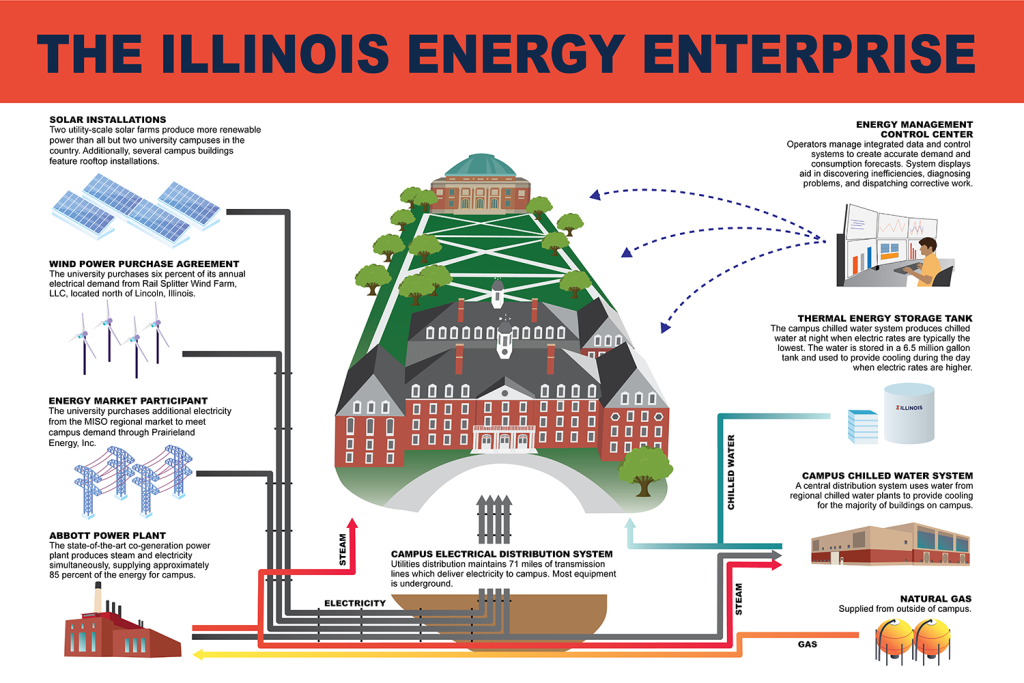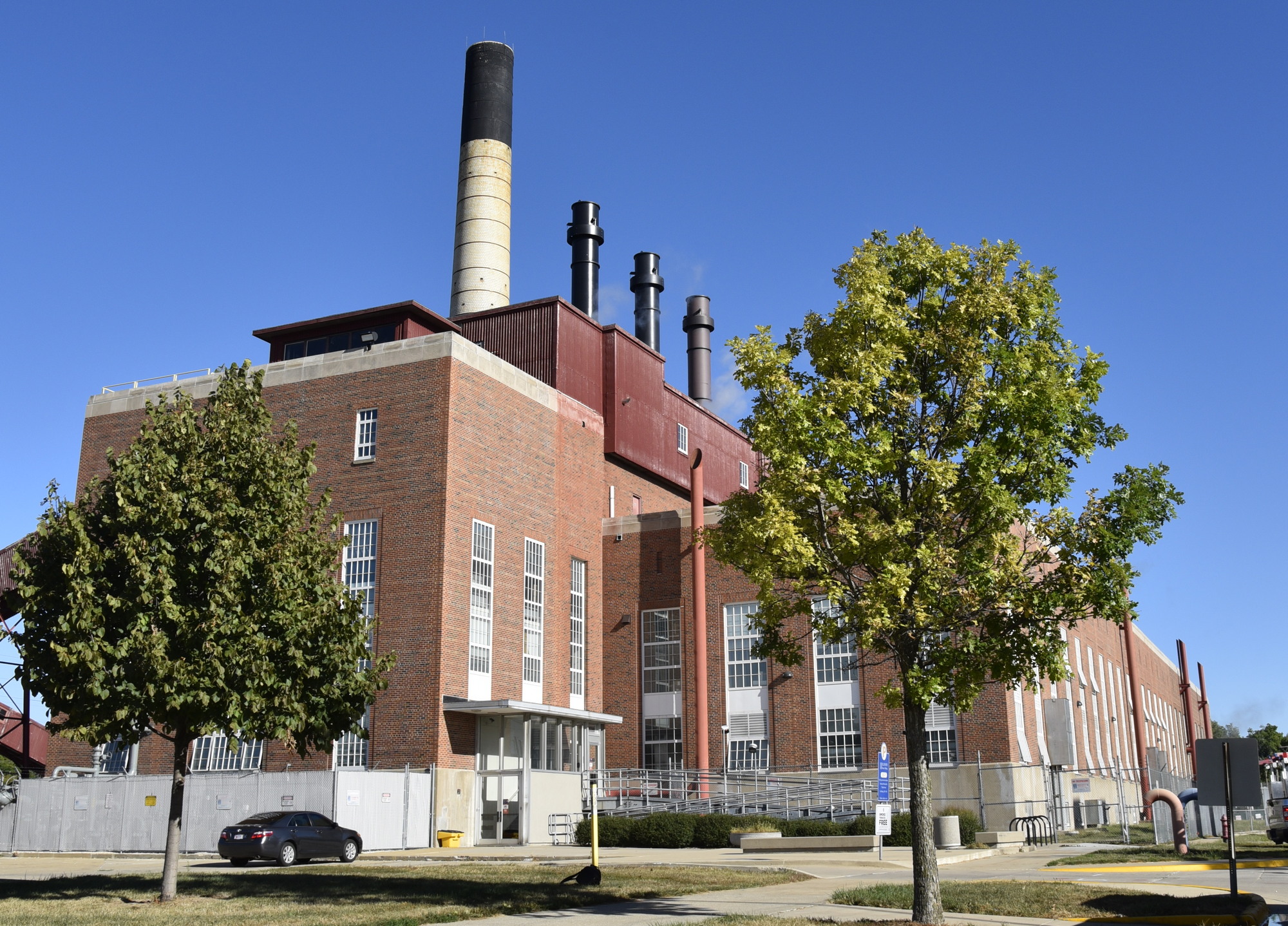Utilities & Energy Services
Utilities & Energy Services (UES) is continuously upgrading to provide safe, reliable, environmentally compliant, cost-effective energy and other utilities to support campus.

Utilities Production and Distribution
Utilities & Energy Services (UES) is responsible for producing, distributing, and operating campus utilities. These services are provided by Abbott Power Plant, the Central Chilled Water System (CCWS), a network of steam and electrical systems, sanitary and storm sewers, and natural gas pipelines. Sustainable power is also used, notably two solar farms that help the campus meet Illinois Climate Action Plan objectives.
Abbott Power Plant supplies much of campus’ energy through generated steam and electricity, maintaining a careful balance between safety, reliability, sustainability, and cost-efficiency. During low campus demand for both heat and air conditioning, Abbott typically uses natural gas as fuel, but can also use coal if and when necessary. The fuel type selected is based primarily on asset availability and market pricing. During the winter months, when the campus heat load is highest, a combination of both coal and natural gas must be used.
Extensive underground piping connects campus buildings to the five CCWS production plants. Twenty-three chillers (steam and electric) deliver the necessary chilled water to operate building air conditioning systems. A 6.5 million gallon Thermal Energy Storage (TES) tank, built in 2010, can provide 50,000 ton-hours to help meet the cooling demand on campus.
Systems & Controls: Building Systems
Campus buildings are typically controlled by either a pneumatic or electronic system that is operated and maintained by Systems & Controls. This group includes the Direct Digital Control (DDC) Programmers, the DDC Electricians, and the Temperature Control Mechanics. A significant effort is underway to update the existing control systems to current standards, improving efficiency and the building environment.
Business Operations: Campus Energy Monitoring
Facility Managers receive energy consumption and cost information through the Energy Billing System (EBS) and its metering, billing, and reporting components. EBS allows units to evaluate the impact of changes in building heating, ventilation and air conditioning (HVAC) programming, including time-based calculations or building-to-building comparisons on energy usage. Business Operations also provides financials for all UES budgets and utility commodity rate setting, including analysis of related capital projects.
Energy Conservation: Innovative Energy Solutions
UES programs and initiatives focus on reducing energy consumption while meeting campus needs.
- Retrocommissioning (RCx) is an in-depth team analysis of a building’s HVAC systems and maintenance program designed to configure the optimal operating conditions and the control strategies for energy conservation, sustainability, and occupant comfort. RCx engineers and field technicians review and improve building performance through sophisticated, remote computerized monitoring and on-site maintenance.
- An ESCO is an accredited Energy Service Company that provides all the services required to design and implement a comprehensive project at the customer facility. The process begins with an initial energy audit and continues through a long-term guarantee of project savings, via an Energy Performance Contract.
- F&S professionals help customers find suitable financial support for energy reduction efforts through a Revolving Loan Fund, ESCOs, and other methods in collaboration with the Office of the Provost, including grant opportunities and standard and custom incentives for items such as lighting and HVAC.
- The Campus Lighting Retrofit Project replaces old, outdated T12 fluorescent lamps and ballasts with state-of-the-art T8 technology, establishing an average energy reduction between 40% and 50% of a building’s electrical use.
The campus continues to transform its energy usage and production to meet a university-wide sustainability commitment shared by students, faculty, and staff. A comprehensive evaluation of university energy purchasing, production, and distribution options will occur in the Utility Master Plan Project. These efforts will help meet the Illinois Climate Action Plan (iCAP) goals of delivering carbon neutrality by 2050.
The Illinois Energy Enterprise
Utilities & Energy Services (UES) is continuously upgrading to provide safe, reliable, environmentally compliant, cost-effective energy and other utilities to support campus. Funding from campus, student fees, and energy conservation grants allow the university to integrate new technologies and streamline the processes of this $100M per year utility enterprise. Since FY08, the university has reduced energy use per square foot by 42%, exceeding the goals of the Illinois Climate Action Plan.

Links
Documents
